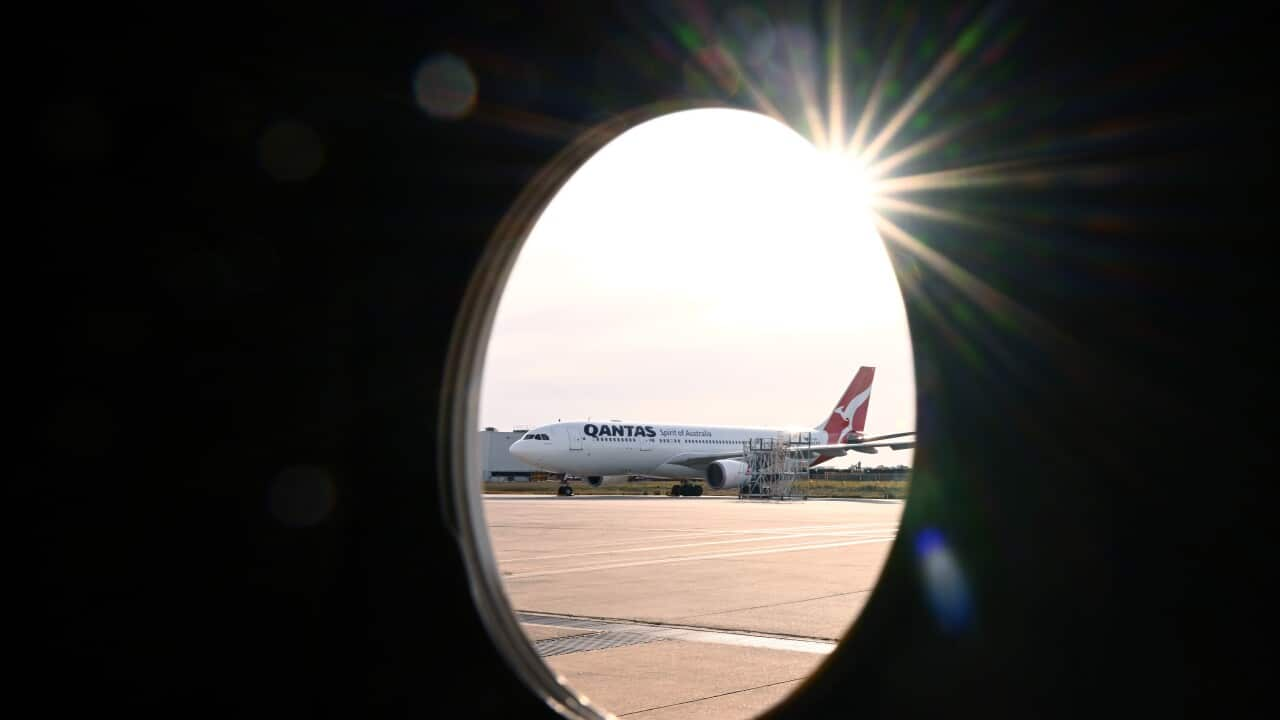TRANSCRIPT
Iran's weekend attack on Israel involved hundreds of drones, ballistic missiles and cruise missiles.
While Israel says 99 per cent of them were intercepted, Israel and some other countries in the region temporarily closed their airspace and flight data showed dozens of planes were forced to turn back.
Passengers waited patiently at Israel's Ben Gurion Airport as the country reopened its skies following the aerial attack.
Independent travel industry analyst Henry Harteveldt says airlines are currently operating in the region with caution.
"Airlines are going to be extremely cautious, when it comes to flying to Israel and that part of the Middle East as well as transiting other parts of the region. Even if they are not flying to Israel, for example, flights that might, transit certain countries in the region, including Iran, as they are flying to other destinations, may be rerouted and that may result in flights lasting longer than normal."
Mr Harteveldt says airlines are constantly monitoring the situation.
"This is a very chaotic situation, obviously, and very uncertain. And there are a lot of questions that everyone wants to know about. Will there be any further attacks by Iran against Israel? Airlines want to know this too, and they're going to be following the news closely. But, you know, airlines have to balance things. They don't want to or shouldn't want to put aircraft, crew and passengers in harm's way. But at the same time, if things look like they will be calm, if airports are safe to operate in and out of, then I believe they will continue to fly in and out of those airports."
The Umited Kingdom-based budget airline EasyJet says it won't fly to Israel for the rest of the spring and summer season, following the Iran attack.
The carrier says it won’t resume flights to Tel Aviv before late October.
German airline Lufthansa has resumed flights to and from Tel Aviv, Amman and Erbil while flights to Beirut and Tehran remain suspended until at least Thursday.
A statement from Qantas says their popular London-Perth flight is the only one currently affected.
"We're temporarily adjusting the flight paths for our flights between Perth and London due to the situation in parts of the Middle East. We’ll reach out to customers directly if there’s any change to their booking. Qantas is continuing to monitor the situation with a range of options available using alternative flight paths."
QF9 will operate using Singapore for a fuel stop over the next few days which enables Qantas to still carry a full load of passengers while minimising disruption.
The return flight QF10 from London can still operate direct to Perth with a full load, due to prevailing winds.
QF9 will operate as QF209 due to the adjusted flight path.
Qantas’ other flights to and from London, Q-F-1 and 2, are unaffected as they operate through different flight paths.
Mr Harteveldt confirms that airlines are weighing their options, and that any decision will be made with safety at the top of the list of concerns.
"It's going to be a very mixed approach towards what airlines do based on the origin and destination of a flight and the aircraft that are involved, because obviously airplanes have a finite amount of range. Some have much greater range than others. And so the airlines are going to be making these adjustments with safety at the top of the list of concerns. And so in some cases the route deviations may be minor, and in other cases they may be much more substantive and add more time to a flight."
Mr Harteveldt says it's not new for airlines to face such instability.
"We've already seen this, I'll remind you, with the start of the Ukraine war and airlines avoiding flying over Russia. In years past, we saw airlines avoid flying over Afghanistan or other countries where conflicts were taking place. So this isn't the first time that we've seen these type of actions. And sadly, I don't think it will be the last."
Asia-based aviation analyst Brendan Sobie says airlines are facing a narrowing set of options to fly between Europe and Asia but that demand remains strong.
"At this point, there's nothing that's really changing. I mean, the demand is still there. People are still traveling, you know, Europe to Asia traffic has been quite strong, since the pandemic, since the re-openings. And, continues to be strong, you know, despite the Russia-Ukraine crisis and despite the, Israel- Hamas crisis. So, you know, and this it remains to be seen. This is a very new crisis, obviously, and we don't really know where this is heading. But, you know, so obviously there's always a concern that, you know, people might be if, you know, to stop traveling or travel less. But so far that hasn't happened."













